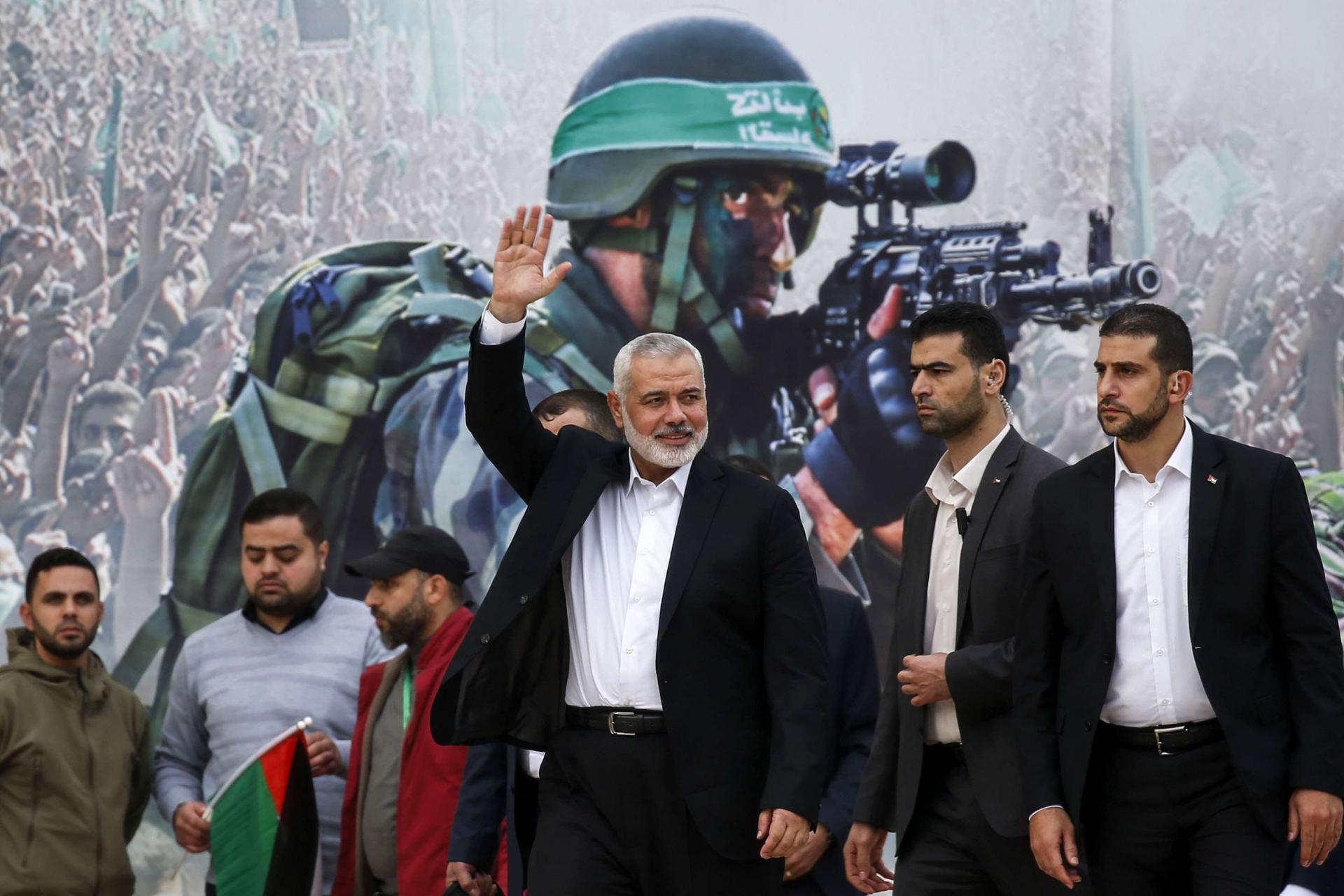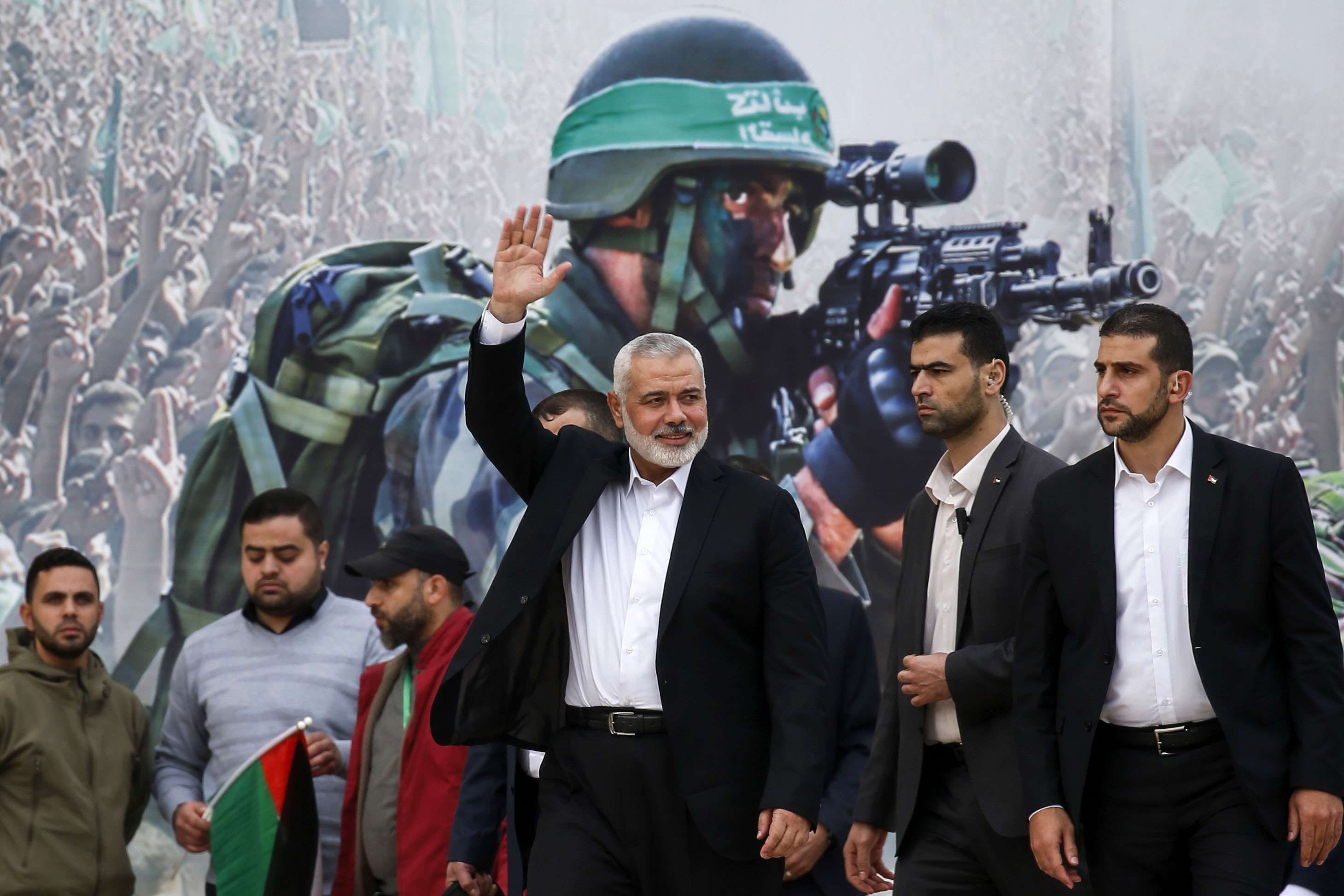Hamas under fire for failed policies, toxic rhetoric
Palestinians in Gaza who have been suffering from an Israeli siege since 2007 are increasingly expressing frustration with Hamas, the movement that controls the Gaza Strip, for failing to provide solutions to their problems.
Many crises that took place recently led Palestinians to question why Hamas has stayed in power but is unable to lift the siege and provide a decent life for the nearly 2 million residents of the tiny costal enclave.
Those who want to work in the governmental sector in Gaza must be a Hamas loyalist or at least supporter. This also applies to international aid assistance from countries such as Saudi Arabia, the United Arab Emirates, Qatar and Turkey and NGOs.
The priority to receive food aid depends on how well a person is connected to the Islamic movement. Housing projects for those whose homes were destroyed in wars with Israel are also prioritised by level of loyalty to Hamas.
If a person has no connection to Hamas, they must be very patient and fight for rights.
No accountability is carried out. Many young people committed suicide because of poverty and debts. The number of beggars — mainly children — in the streets has reportedly tripled.
Mass migration is taking place from Gaza to settle in Europe, especially among unemployed youth and graduates. Even some of those who are rich and who have a stable life have left looking for a better future and to enjoy their basic rights.
Activists and journalists have left because they were unable to express themselves or report without intimidation.
Leaving Gaza is not easy. The Egypt-controlled Rafah crossing is the main gateway for the Gazans to the outside world. They must exert effort to make sure their name is on the departures list. Connections and sometimes bribes are a must to make it out of the “big prison.”
Coordination must go through both Egyptian authorities and Hamas. Reaching Cairo safely from Rafah via the Sinai Peninsula is another story. The suffering has become part of Gazans’ daily life and Hamas is often accused of contributing to the misery by refusing to concede power, allow elections and reconcile with Fatah. The gap between the two parties is big.
Hamas has not helped improve its image.
Saeb Erekat, the secretary-general of the Palestine Liberation Organisation’s Executive Committee, condemned statements by senior Hamas official Fathi Hammad calling on the Palestinian Diaspora to kill Jews.
“The just values of the Palestinian cause include love for freedom, justice and equality. The repugnant statement of Hamas leader Mr Fathi Hammad about Jews doesn’t represent any of them. Religion shouldn’t be used for political purposes.” Erekat posted on Twitter.
Palestinian social media activists slammed Hammad’s incendiary rhetoric, describing it a political stupidity. They said the struggle of Palestinians is against Israel’s military occupation. “Our enemy is the occupation and not Jews. There are many Jews supportive of what is right and just in the world,” Palestinian activist Ahmad Abu Artema wrote on Facebook.
Hamas issued a statement saying: “Hamas’s consistent, adopted policy of limiting its resistance to the Zionist occupation that usurps Palestine’s land and defiles its holy sites.”
Hammad’s irresponsible and miscalculated comments are harmful to the Palestinian cause. They diverted attention from hate-inciting and racist statements of Israeli officials and religious leaders against Palestinians.
“His speech is outlandish, bizarre and does not represent any of the Palestinian people, let alone the Palestinian leadership; even Hamas movement disowned his statement,” said Asad Abu Sharekh, a Palestinian political analyst.
“The official policy of the Palestinian people, including all factions, is that we are not against the Jews. Judaism is a religion that we respect but we say that our enemy is Zionism and the Israeli occupation.”
Hamas has failed to rule and resist at the same time. It has misused the rhetoric when addressing the world. It did not consider the geopolitics of the region.
It would take courage for Hamas to admit its failures but it has further cracked down on critics.
Yousef Alhelou is a Palestinian journalist living in London.
This article was originally published in The Arab Weekly.



